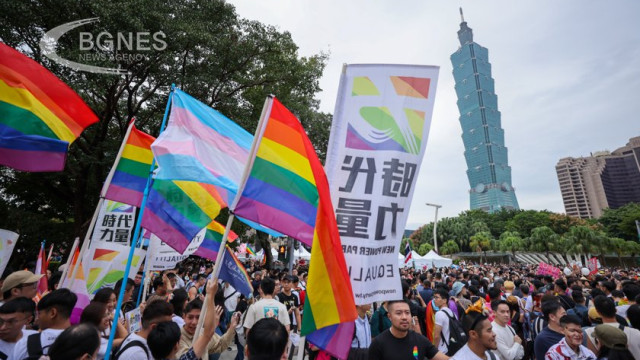Russia's Supreme Court has banned an "international" LGBTI movement on the grounds of "extremism", paving the way for prosecutions and prison sentences against homosexuals and activists defending their rights in Russia, AFP reported.
This decision comes at a time when the country is undergoing an ultra-conservative shift directed against LGBTI people, with Russia now presenting itself as the bearer of "traditional" values in the face of Western decline.
This policy accelerated after the Russian military invaded Ukraine in late February 2022, leading to a crackdown on all forms of criticism of the Kremlin.
Judge Oleg Nefedov ordered "that the international LGBTI movement and its affiliates be recognized as extremists and that their activities be banned on the territory of the Russian Federation."
Nefedov said the ban would take effect "immediately".
The hearing, the first in this case, lasted only a few hours and was held without a defense attorney - no such organization exists in Russia - and behind closed doors, as the case was classified as "secret".
"Only a representative of the Russian Ministry of Justice took part in the hearing; no one from the defense appeared," the Supreme Court said.
In mid-November, Russia's Justice Ministry called for the "international LGBTI movement" to be classified as an "extremist organization" and banned, without specifying which organization it was targeting, paving the way for a ban on any movement advocating these causes.
Any public activity related to what Russia considers "non-traditional" sexual preferences can now be prosecuted under the pretext of "extremism" - a crime punishable by heavy prison terms.
"Aggression knows no bounds. This is nothing new. One day all this will end, but for now we must continue to live and try to preserve ourselves," responded on Telegram the Russian association "Feminist Resistance to War", which supports the rights of LGBTI people.
"In practice, the authorities can start opening criminal cases against public figures and activists in order to create a climate of fear," said Maxim Olenichev, a lawyer from the First Squad NGO, which helps victims of repression in Russia.
Until now, LGBTI people risked heavy fines if they were accused of "propaganda" - the term used by the authorities, but not prison.
In the past decade, their rights have been drastically curtailed under the impulse of Vladimir Putin, who, along with the Orthodox Church, claims he wants to remove from the public sphere behavior deemed deviant and imported from the West.
Yan Dvorkin, the founder of the NGO "Center T" in Russia, which helps transgender people, has fled the country for fear of being accused of "extremism" and jailed for creating the association.
"Work in Russia is becoming very precarious. It seems that those (LGBTI activists) who survive will live in complete hiding," he said.
For him, this legal process directed against a "movement" that does not officially exist in Russia is "a new height of madness." /BGNES
Russia banned the "LGBTI movement" because of extremism







